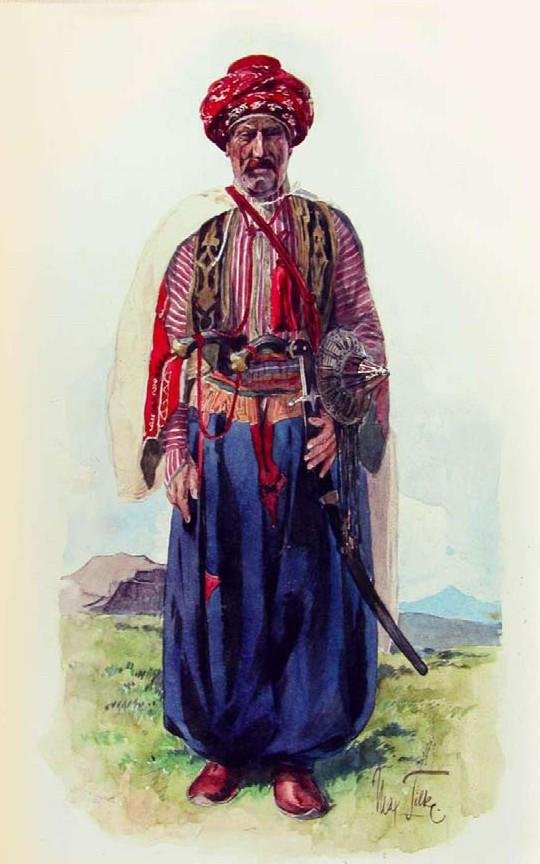ORIGINS OF YEZIDI

The Yazidis are a mostly Kurdish-speaking people who adhere to the religion Yazidism, a religion rooted in Persian religions blended with elements of pre-Islamic Mesopotamian/Assyrian religious traditions, Mithraism, Christianity and Islam. In addition to the Kurdish-speaking majority, there are significant Yazidi communities that speak Arabic as their native language. Their ethnicity is obscure despite the fact that they mostly speak Kurdish. Commentators identify the Yazidis as predominately Kurds but according to some sources, they tend to regard themselves as distinct from Kurds. The United Nations recognizes the Yazidis as a distinct ethnic group. A report from Human Rights Watch (HRW), in 2009, declares that to incorporate disputed territories in northern Iraq-particularly the Nineveh province- into the Kurdish region, KRG and Kurdish authorities have embarked on a two-pronged strategy of inducement and repression. The HRW report also criticizes heavy-handed tactics. According to report: “The goal of these tactics is to push Shabak and Yazidi communities to identify as ethnic Kurds. The Kurdish authorities are working hard to impose Kurdish identity on two of the most vulnerable minorities in Iraq, the Yazidis and the Shabaks”. Their principal holy site is in Lalish, northeast of Mosul. The Yazidis’ own name for themselves is Êzidî or Êzîdî or, in some areas, Dasinî (the latter, strictly speaking, is a tribal name). Some scholars have derived the name Yazidi from Old Iranian yazata (divine being), and Yazidis themselves believe that their name is derived from the word Yezdan or Êzid “God”, denying the widespread idea that it is a derivation from Umayyad CaliphYazid I (Yazid bin Muawiyah), revered as Sultan Ezi. The Yazidis’ cultural practices are observed in Kurdish, and almost all speak Kurmanjî with the exception of the villages of Bashiqa and Bahazane, where Arabic is spoken. Kurmanjî is the language of almost all the orally transmitted religious traditions of the Yazidis.
The religion of the Yazidis, Yazidism, is a kind of Yazdânism and has many influences: Sufi influence and imagery can be seen in the religious vocabulary, especially in the terminology of the Yazidis’ esoteric literature, but much of the theology is non-Islamic. Their cosmogonies apparently have many points in common with those of ancient Persian religions. Early writers attempted to describe Yazidi origins, broadly speaking, in terms of Islam, or Persian, or sometimes even pagan religions; however, research published since the 1990s has shown such an approach to be simplistic.
The origin of Yazidism is now usually seen by scholars as a complex process of syncretism, whereby the belief system and practices of a local faith had a profound influence on the religiosity of adherents of the ‘Adawiyya Sufi order living in the Yezidi mountains, and caused it to deviate from Islamic norms relatively soon after the death of its founder, Shaykh ‘Adī ibn Musafir, who is said to be of Umayyad descent. He settled in the valley of Laliş (some thirty-six miles north-east of Mosul) in the early 12th century. Şêx Adî himself, a figure of undoubted orthodoxy, enjoyed widespread influence. He died in 1162, and his tomb at Laliş is a focal point of Yazidi pilgrimage.
According to the Yezidi calendar, April 2012 marked the beginning of their year 6,762 (thereby year 1 would have been in 4,750 BC in the Gregorian calendar).
During the fourteenth century, important Yezidi tribes whose sphere of influence stretched well into what is now Turkey (including, for a period, the rulers of the principality of Jazira) are cited in historical sources as Yazidi.
According to Moḥammed Aš-Šahrastani, “The Yezidis are the followers of Yezîd bn Unaisa, who [said that he] kept friendship with the first Muhakkama before the Azariḳa”. “It is clear, then, that Aš-Šahrastani finds the religious origin of this interesting people in the person of Yezîd bn Unaisa. … We are to understand, therefore, that to the knowledge of the writer, bn Unaisa is the founder of the Yezidi sect, which took its name from him.” “Now, the first Muhakkamah is an appellative applied to the Muslim schismatics called Al-Ḫawarij. … According to this it might be inferred that the Yezidis were originally a Ḫarijite sub-sect.” “Yezid moreover, is said to have been in sympathy with Al-Abaḍiyah, a sect founded by ‘Abd-Allah Ibn Ibaḍ.”
Hello my name is @eduardoff, I am new to this channel, I invite you to follow me in this community and generate a good friendship, see you soon